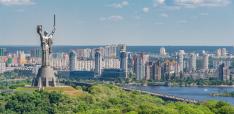International City Cooperation in the Fight Against Covid-19: Behind the Scenes Security Providers

The Covid-19 pandemic has affected every aspect of society and nearly every unit of government. Much discussion has occurred regarding how to best protect and equip front-line and essential workers, but what about front-line and essential governments? Arguably the most important governments in pandemic response are city governments. Although most international debate surrounding governmental and societal prevention and response to the pandemic has centered around the nation-state or national leaders, this paper takes a different direction. Instead we focus on pandemic initiatives that have mostly occurred ‘behind the scenes.’ Cities, without the general public’s realization, have been at the forefront of international cooperation in the fight against Covid-19. This paper focuses on US, Chinese, and Taiwanese cities in order to shine light on the phenomenon of city diplomacy and offers policy recommendations to various stakeholders in city diplomacy, including local authorities, international organizations, academia, and journalists.
Policy Recommendations
- Even though cities in certain national political systems are viewed only as an arm of the state apparatus that implement centrally-devised policies on the local level, very often the problems and tasks they face are of international nature and as such, necessitate responses with international consideration. Therefore, in order to solve global challenges, cities should invest into the recruitment and education of the staff able to deal with international matters or even develop a separate department responsible for dealing with ‘foreign affairs’.
- Cities need to be better integrated into the international community. Because cities have shown that they can develop innovative, nimble, and efficient solutions to international problems, their problem-solving capacity needs to be further recognized. Although there have been noble efforts in the last few years with the creation of the Global Parliament of Mayors and the U20, along with higher profile, higher participant level, global summits like UN Habitat’s World Urban Forum, the power of cities is still generally outside the mainstream decision-making processes of the state based international system.
- As long as the central governments may have different priorities than the cities located within their purview (i.e. achieving nation-wide political goals rather than finding practical solutions to local problems), cities should look for and improve existing international partners outside national governments. Moreover, cities should not limit themselves to partnerships with foreign counterparts but also learn from the other international actors, including the central governments around the world.
- In the era of internet communication, knowledge sharing is not only a privilege of the wealthiest cities, which have resources to invest in more formal diplomatic tools and officials. Medium and small size local authorities can also benefit from information sharing and reporting that is now available and distributed via online networks and communication channels. Moreover, this type of online exchange can become an important first step for long term development cooperation in more complex issue areas.
- International relations scholars and the media need to pay more attention to the international activities of cities. Without increased awareness within academic and journalistic communities, the general public will not be aware of the potential impact that cities (and by extension people) have on solving global borderless challenges.


